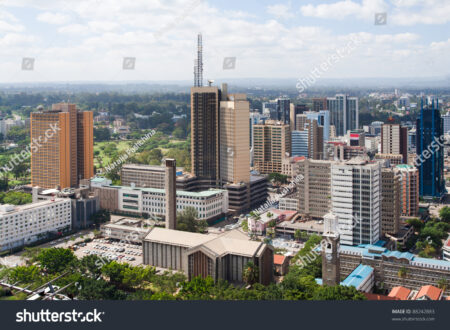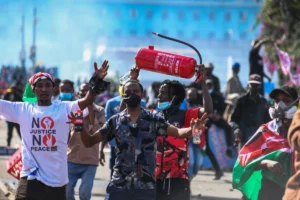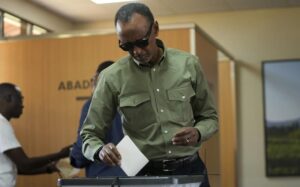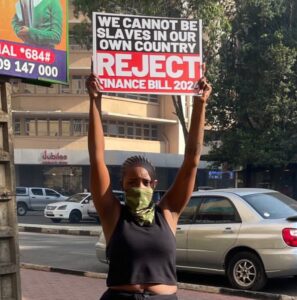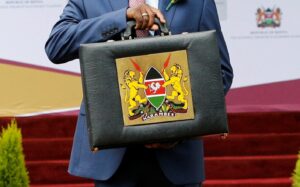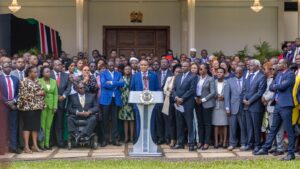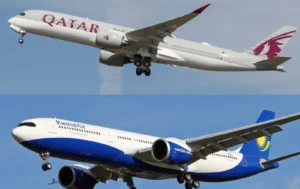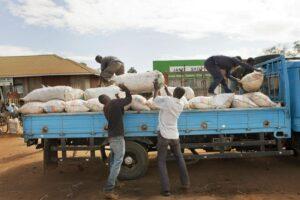- Africa’s new dawn: the rising role of digital and AI in agriculture
- Can Dangote Refinery Transform Africa Energy Ambition
- Gallup Survey: 80 per cent of Kenyan Workers Are Disengaged and Seek New Opportunities
- Madagascar Man Freed from 5KG Tumor After 15-Year Struggle
- How women in Africa are perceived and treated
- Sugar consumption in Kenya to Increase to 1.23 Million Tonnes
- Can Somalia and Turkey Oil deal Bring Change in Somaliland
- Remittances to Kenya dropped to $371.6 million in June, marking a six month low
Countries
- A majority of Kenyan workers are disengaged according to the 2024 edition of Gallup employees survey.
- The survey further shows that men are slightly more engaged than their female counterparts.
- More women (50 per cent) were stressed than men (47 per cent). The junior employees recorded higher stress levels than managers.
A new study shows that for every five employed Kenyans, four lack the drive to go above and beyond in their roles at work.
A recent global survey by Gallup says 80 per cent of Kenyan workers are “disengaged” meaning they only do the bare minimum and are only in their current job because they haven’t found a job opening elsewhere.
‘Disengaged from work’ refers to a lack of emotional or psychological connection to one’s job or workplace.
Disengaged employees typically show low levels of motivation, commitment, and enthusiasm for their work.
At 80 percent, the rate of disengagement …
- Only about 50% of women in Kenya and 52% in Uganda feel that they are treated with respect and dignity.
- In Zimbabwe, 60% of women feel that they are treated with respect and dignity. This is a sharp drop from an estimated 71% of women who reported being treated with respect in 2013.
- The percentage of people in South Africa who feel this way was even worse at 27% among men and 28% among women.
In Africa’s most advanced economy South Africa, the percentage of people in South Africa who felt this way was even worse at 27 percent among men and 28 percent among women.
The push for equality across Africa appears far from yielding good results with a new report showing that the perceptions that women are treated with respect and dignity have dropped sharply in recent years in Kenya, Uganda South Africa, and Zimbabwe.
According to Gallup …
- Antoinette Monsio Sayeh is set to retire as Deputy Managing Director of the International Monetary Fund (IMF) on September 12, 2024.
- The IMF says her experience, deep integrity, and wise judgment have been invaluable to the global lender.
- Antoinette Sayeh oversaw several vital initiatives of operations, policies, and corporate priorities, drawing on her deep knowledge of the institution.
Liberian management icon and trailblazer Antoinette Monsio Sayeh is set to retire from the International Monetary Fund (IMF) on September 12, 2024.
In an update by the IMF Managing Director Kristalina Georgieva, Antoinette Sayeh will conclude her tour of duty in the Washington-based institution this September where she has been serving as the Deputy Managing Director since 2020.
At the helm, she served with deputy managing directors Kenji Okamura (Japan), Bo Li (China) and Gita Gopinath (US/India) who is the first managing director.
“Antoinette has been a pillar of the Fund’s leadership …
- The protests, dubbed “occupy parliament,” were coordinated and mobilised on social media in contrast to those led and sponsored by politicians.
- Many were demonstrating for the first time and waved signs such as “Do Not Force the Taxes on Us,” while others chanted: “Ruto must go.”
- Unlike previous political anti-government protests, these demonstrations are not characterised by looting, destruction of property, or stone-throwing.
Social media as a weapon
A bold new generation of young Kenyan protesters has emerged on the streets, forcing the government to back down on several unpopular tax proposals.
What started as anger on TikTok about a controversial finance bill has morphed into a revolt without being organised by political parties.
The government of President William Ruto has managed to do what generations of politicians in the East African nation still need to do unite huge numbers of Kenyans beyond ethnicity and party.
On 18th June 2024, …
- Young people, particularly Generation Z, have taken to the streets of the capital Nairobi, and other cities demanding rejection of new tax proposals.
- Critics argue that these measures will disproportionately affect the lower and middle classes of the economy, further straining an already burdened population.
- President Ruto justifies these measures as necessary steps to alleviate the country’s mounting debt.
For Kenya’s President Ruto and his administration, a confluence of failed promises, high cost of living, and hopelessness among the youth is threatening to tear his government as millions of youth mount widespread civil unrest, protesting an increase in taxes in Finance Bill 2024.
Young people, particularly Generation Z, have taken to the streets of the capital Nairobi, Mombasa, Nakuru, Kisumu, Eldoret, and Nyeri vehemently demanding the rejection of the Bill, which is under debate in Parliament.
The movement, which appears to be spearheaded by vocal activists and amplified by social …
- Efficient public spending in Kenya has been elusive over the year with the East African country forced to borrow to meet its budget
- Further the firm is recommending more performance based incentives for industries by the government to enable grow the jobs offering.
- PwC adds that Proposed allocation of Sh4.5 billion for County Aggregation and Industrial Parks (CAIPs) will help to reduce post-harvest losses.
Experts are warning Kenyans to brace for a tough 2024-25 financial year as the government moves to ramp up revenue measures to finance the recently released budget.
A post budget analysis by Audit firm Deloitte has revealed that the new year will be a hard one for Kenyans and will require fiscal discipline to navigate.
Doris Gichuru, partner for tax and legal at Deloitte says that Given the Finance Bill 2024 there is going to be a challenge in private consumption from the various measures though …
- The finance bill aroused many wounds in many Kenyans, leading to protests in the capital city, Nairobi, over the burden of proposed taxes in the finance bill 2024
- Azimio insists that the tax measures will substantially impact both individuals and businesses in the country.
- The National Assembly Committee on Finance, chaired by Molo Mp Kimani Kuria, is expected to table a report on the Bill after carrying out a public participation exercise.
The protests over the Finance Bill
The finance bill aroused many wounds in many Kenyans, leading to protests in the capital city, Nairobi, over the burden of proposed taxes in the finance bill 2024. The protest, dubbed ” Occupy Parliament” demonstrations, aimed to pressure the lawmakers not to pass the bill.
The Finance Bill 2024 has been opposed over some contentious proposals, including a 16 per cent VAT tax on bread, a 2.5 per cent motor vehicle circulation …
- Tax reforms proposed in the bill have aroused concerns due to their potential to increase costs and financial burdens across the board.
- A positive proposal in the Bill for the housing sector is the removal of the excise duty rate on cement clinkers.
- Some of the Finance Bill proposals highlighted reflect the government’s attempts to promote affordability, stimulate construction, and streamline property transactions in the housing sector.
The Finance Bill 2024 has become the focal point of discussions across Kenya, capturing the attention of individuals and businesses alike. This widespread interest stems from the significant and far-reaching impact the proposed bill could have on various sectors and the daily lives of Kenyans.
The comprehensive tax reforms proposed in the bill have aroused concerns due to their potential to increase costs and financial burdens across the board. With the prospect of higher taxes on fuel, motor vehicles, and digital services, many …
- President William Ruto of Kenya urges for reforms to the global financial system to provide Africa with access to long-term concessional finance and greater decision-making power.
- He highlights the critical need for investments in Africa’s infrastructure and clean energy projects to drive sustainable development and economic growth.
- The G7 Summit sought partnerships with African nations, aiming to bridge the continent’s infrastructure gap and support its development goals.
At the 50th G7 Summit held in Borgo Egnazia, Italy, President William Ruto of Kenya made a compelling case for the transformation of the global financial system to better serve Africa. Addressing an audience of world leaders, Ruto called for reforms that would grant the Global South, particularly Africa, access to long-term concessional finance and a greater voice in international decision-making processes.
“Reforming the multilateral global financial system is crucial for enabling Africa to access concessional, long-term, and agile finance,” Ruto emphasized. He …








